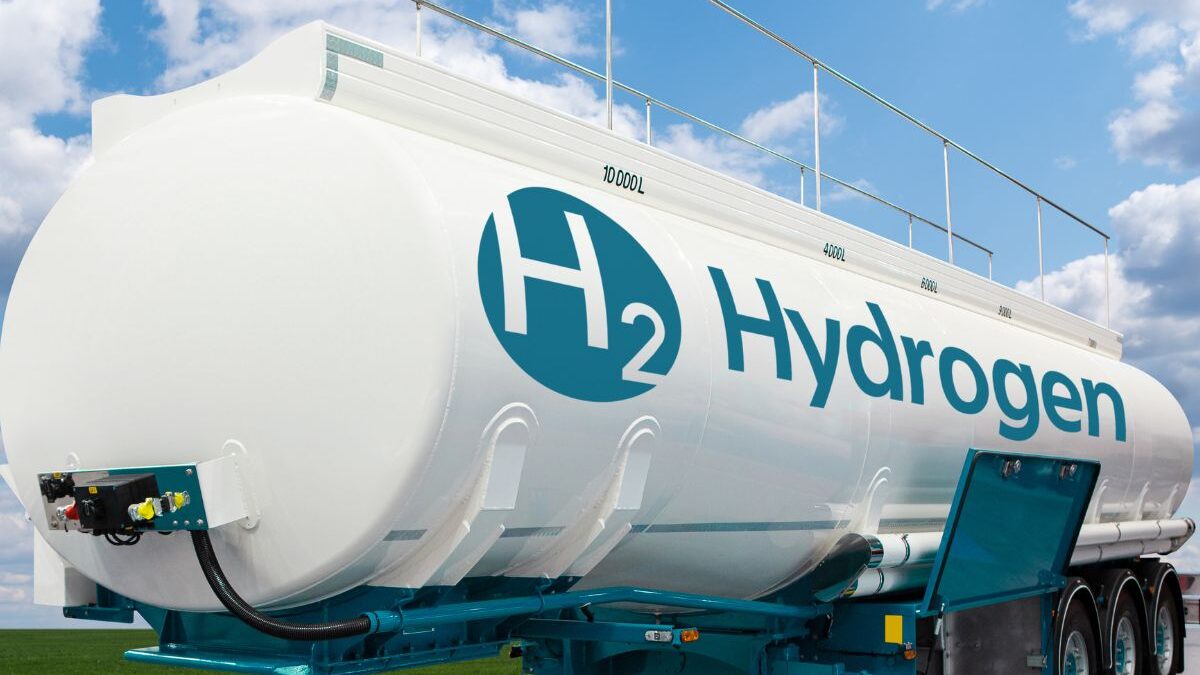Understanding the Risks and Precautions of Handling Hydrogen in Industrial Environments

Ensuring Safe Operations: Best Practices for Cryogenics Plant Safety
July 25, 2023
BBSM Case Studies: Real-Life Examples of Successful Safety Improvements
July 26, 2023Understanding the Risks and Precautions of Handling Hydrogen in Industrial Environments
In this article, we delve into a critical topic that demands unyielding attention in industrial environments – the risks and precautions associated with handling hydrogen. As one of the most abundant elements in the universe, hydrogen offers immense potential as an energy source. However, inadequate knowledge and improper handling can give rise to catastrophic consequences. Through comprehensive analyses and expert insights, we equip you with a clear understanding of the dangers involved and the necessary precautions to ensure safety. Stay tuned, as we unveil invaluable information that will empower you to navigate the realm of hydrogen handling with utmost confidence and caution. Let us guide you through the complexities and uncertainties, offering you the peace of mind you seek.
Introduction
Hydrogen gas, with its unique properties and wide array of industrial applications, plays an integral role in various sectors. However, its handling and storage present a myriad of risks that must be understood and managed effectively. In this article, we will delve into the world of hydrogen gas in industrial environments, exploring the potential dangers associated with its use and the precautionary measures that can be taken to ensure safety. As we explore the risks and precautions related to handling hydrogen gas in industrial settings, readers can expect to gain a comprehensive understanding of the potential hazards involved. This knowledge will equip them with valuable insights on how to mitigate risks effectively while working with this versatile yet potentially dangerous substance.
What is Hydrogen Gas?
Hydrogen gas, an odorless and colorless substance, is the lightest element on the periodic table. With its atomic number of 1, hydrogen holds great potential as an energy carrier due to its high energy content and ability to produce clean power. It can be produced through various methods such as electrolysis of water or by extraction from hydrocarbon fuels. One of the intriguing qualities of hydrogen gas lies in its versatility and wide range of applications across different industries. As a fuel source, it has gained significant attention for powering vehicles, heating systems, and even electricity generation through fuel cells. Moreover, hydrogen plays a vital role in industrial processes like ammonia production for fertilizers, refining petroleum products, and manufacturing chemicals such as methanol.
Though hydrogen exhibits immense promise as a sustainable energy solution and a critical industrial component, it is essential to understand both its benefits and potential hazards. Proper handling of this volatile gas is crucial due to its flammability and low ignition energy. By adopting stringent safety measures in industrial environments where hydrogen is present, we can harness its potential while ensuring the utmost protection for workers and facilities alike.
Industrial Applications of Hydrogen
Hydrogen gas, with its remarkable properties, has found a multitude of applications in various industrial sectors. One significant area where hydrogen plays a crucial role is in the production of ammonia for fertilizers. By combining hydrogen with nitrogen extracted from the air through the Haber-Bosch process, vast quantities of ammonia can be produced, ensuring abundant food supply and contributing to global agricultural productivity.
Furthermore, hydrogen is extensively utilized in industries such as petroleum refining and manufacturing processes. In petroleum refining, hydrogen is used as a vital component for hydrotreating, a process that removes impurities from crude oil to produce cleaner fuels. This helps reduce harmful emissions and promotes environmental sustainability.
In conclusion, the industrial applications of hydrogen are vast and diverse. From enabling efficient fertilizer production to promoting cleaner fuels and powering emission-free transportation, hydrogen’s versatility makes it an essential resource in driving sustainable development across industries worldwide. Embracing these applications not only enhances economic growth but also offers a brighter future with greener technologies at our disposal.
Understanding the Risks of Handling Hydrogen
In the realm of industrial environments, handling hydrogen gas requires a comprehensive understanding of its potential risks. The inherent flammability and explosiveness make it imperative to acknowledge and mitigate these hazards. Hydrogen is a colorless, odorless, and tasteless gas that can readily form highly combustible mixtures with air. This characteristic, coupled with its low ignition energy, necessitates caution in every step of its handling. One primary risk associated with hydrogen is its wide flammability range. A concentration as low as 4% in air can create an explosive atmosphere if an ignition source is present. As a result, strict measures must be employed to prevent accidental releases and minimize potential ignition sources within the vicinity. Additionally, hydrogen’s low density allows it to rapidly disperse through leaks or breaches in containment systems. This poses a significant safety concern as even minor leaks can lead to the formation of explosive concentrations when combined with atmospheric oxygen.
Remember: Knowledge coupled with proactive precautions empowers us to safely navigate the path towards embracing this remarkable element’s potential for sustainable energy solutions
Safety Precautions for Handling Hydrogen
Ensuring the safe handling of hydrogen in industrial environments is of paramount importance. Understanding and implementing appropriate safety precautions can significantly reduce the potential risks associated with this highly flammable gas. Firstly, it is vital to establish well-ventilated work areas, as hydrogen is lighter than air and tends to disperse quickly. Adequate ventilation prevents the build-up of potentially explosive concentrations.
Secondly, regular inspections and maintenance of equipment are crucial to minimize the chances of leaks or malfunctions. Safety devices such as pressure relief valves must be installed and kept in optimal working condition. Additionally, strict adherence to proper storage protocols, such as using well-maintained and approved containers designed for hydrogen storage, helps mitigate potential hazards.
Furthermore, following proper handling procedures is essential for avoiding accidents. This includes ensuring that ignition sources are kept far away from hydrogen storage areas and maintaining a strict no-smoking policy within these zones. Establishing clear signage and designated walkways also helps prevent accidental collisions or trips that could lead to spills or breaches in containment.
Personal Protective Equipment (PPE) for Hydrogen Handling
When it comes to handling hydrogen in industrial environments, it is crucial to prioritize the safety and well-being of workers. Personal Protective Equipment (PPE) plays a pivotal role in ensuring that individuals are adequately protected while working with this highly flammable gas.
First and foremost, a properly fitted flame-resistant suit made from non-static materials is essential. This suit acts as a barrier against potential ignition sources and helps protect the wearer from thermal hazards. Additionally, wearing goggles or a face shield can shield the eyes from any splashes or releases of hydrogen, which could cause severe eye damage.
To further safeguard against potential risks, workers must don gloves made from chemical-resistant materials such as neoprene or nitrile. These gloves offer protection against contact with liquid hydrogen, which can cause frostbite upon skin contact due to its extremely low temperature. Moreover, sturdy steel-toed boots are indispensable to guard against any accidental spills or falling objects that may pose a threat to the feet.
Training and Education for Hydrogen Safety
Developing a thorough understanding of hydrogen safety requires comprehensive training and education programs. These initiatives play a pivotal role in equipping individuals with the knowledge and skills necessary to handle hydrogen safely in industrial environments. Training modules cover a wide range of topics, including the properties of hydrogen gas, its potential hazards, and best practices for safe handling.
Through interactive workshops and simulations, workers gain practical experience in identifying potential risks associated with hydrogen use and implementing appropriate safety measures. They learn about effective leak detection methods, proper storage procedures, and the importance of maintaining equipment integrity. Furthermore, these programs emphasize the significance of teamwork during emergencies to ensure swift response and minimize potential harm.
In addition to technical aspects, training also focuses on fostering a safety-conscious mindset among workers. By promoting a culture that values continuous improvement in safety practices, organizations create an environment where employees actively engage in identifying potential hazards and finding innovative solutions. This approach not only enhances individual safety but also cultivates a sense of collective responsibility towards creating a safer workplace for everyone involved.
Ultimately, investing in comprehensive training programs instills confidence in workers’ ability to handle hydrogen safely while reinforcing the notion that safety is paramount at all times. By empowering individuals with knowledge and skills through these educational initiatives, industries pave the way for safer practices that promote efficiency, productivity, and overall success in working with hydrogen gas.
Emergency Response Procedures for Hydrogen Incidents
In the unlikely event of a hydrogen incident, prompt and effective emergency response procedures are crucial to minimize potential risks and ensure the safety of personnel and the surrounding environment. When dealing with hydrogen incidents, it is important to remember that swift action combined with a well-coordinated response can often prevent further escalation.
First and foremost, upon discovering a hydrogen leak or incident, it is imperative to alert all personnel in the vicinity immediately. This can be done by activating an alarm system or utilizing designated communication channels specifically designed for emergency situations. Simultaneously, it is essential to isolate the affected area by shutting off any potential ignition sources such as electrical equipment or open flames.
Ultimately, maintaining open lines of communication throughout the emergency response process is vital. Regular updates regarding progress made in addressing the incident should be shared with all stakeholders involved. This not only fosters collaboration but also helps instill confidence among those affected that remedial actions are being carried out effectively
Conclusion
In our quest for progress and innovation, the handling of hydrogen in industrial environments has become a critical aspect of many industries. With its immense potential and versatility, it is crucial to fully comprehend the risks involved and take appropriate precautions to ensure safety. By implementing stringent safety measures, providing comprehensive training, and equipping workers with proper personal protective equipment, we can confidently navigate the world of hydrogen with an optimistic outlook. Remember, knowledge is power, and when wielded responsibly, hydrogen can propel us towards a brighter future where clean energy reigns supreme. So let us embrace this challenge together and forge ahead towards a safer tomorrow.
With Best Wishes
Sanjeev Kumar Paruthi
Director & CEO
TSM TheSafetyMaster® Private Limited
Unit No 221-451-452, SPL1/J, 2nd & 4th Floor, Sunsquare Plaza Complex, RIICO Chowk, Bhiwadi 301019, Rajasthan, India
Phone: +91 1493 22 0093
Mobile: +91 7665231743/9413882016
Email: info@thesafetymaster.com




